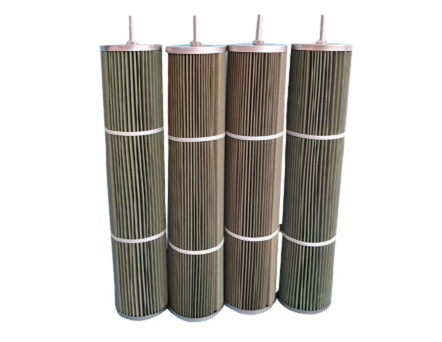 Tel:
+8615930870079
Tel:
+8615930870079
dec. . 18, 2024 11:33 Back to list
gas turbine inlet filter
The Importance of Gas Turbine Inlet Filters in Power Generation
Gas turbines are a cornerstone of modern energy generation, powering everything from aircraft to power plants. As versatile and efficient machines, they convert fuel into mechanical energy through a cycle of compression, combustion, and expansion. However, their performance can be significantly compromised by contaminants such as dust, dirt, and moisture that enter through the air intake. This is where gas turbine inlet filters come into play, serving as a critical component in ensuring optimal performance and longevity of these turbines.
Understanding Gas Turbine Inlet Filters
Gas turbine inlet filters are specifically designed to clean the air entering the turbine. The quality of the air intake is crucial, as any impurities can lead to inefficiencies and damage to the turbine components. These filters utilize several techniques to capture pollutants. Typically, they consist of a multi-layered design, where each layer has distinct properties to trap various sizes of particles. The most common filter materials include synthetic fibers, glass fibers, and sometimes membrane materials known for their high filtration efficiency.
The Role of Inlet Filters in Performance Optimization
The primary function of gas turbine inlet filters is to prevent unwanted particulates from entering the turbine
. When air is filtered effectively, it allows for a more precise combustion process, leading to higher efficiency and reduced emissions. Furthermore, clean air intake contributes to stable operation and higher output power. In many cases, efficient inlet filtration can enhance the overall efficiency of the turbine by several percentage points, translating to significant fuel savings and lower operational costs over a significant period.Impact on Maintenance and Operational Costs
gas turbine inlet filter

Investing in high-quality inlet filters can also lead to noticeable reductions in maintenance costs. Turbines plagued by dirt and contaminants often require more frequent maintenance and component replacements, such as compressor blades and combustion chambers, which can be extremely costly. By incorporating effective inlet filters, operators can extend the intervals between maintenance procedures, enhancing the overall reliability of the power generation system.
Environmental Considerations
Another vital aspect of gas turbine inlet filters is their contribution to environmental sustainability. By ensuring that turbines operate efficiently with clean air, these filters help in minimizing emissions of harmful pollutants such as nitrogen oxides (NOx) and carbon dioxide (CO2). Given the increasing regulatory pressure on power generation facilities to reduce their environmental footprint, adopting advanced filtration technologies becomes not only a performance consideration but also a necessity for compliance with environmental regulations.
Technological Advancements and Future Trends
In recent years, there has been significant progress in the technology used for gas turbine inlet filtration. Innovations such as advanced synthetic materials and smart filtration systems equipped with real-time monitoring are being developed. These advancements can enhance filtration efficiency while also providing operators with actionable insights into the system's performance, allowing for proactive maintenance and improved operational efficiency.
Conclusion
In conclusion, gas turbine inlet filters are indispensable for maintaining the efficiency, reliability, and environmental compliance of gas turbine operations. They not only protect the machinery from harmful contaminants but also play a crucial role in optimizing performance and reducing operational costs. As the demand for clean and efficient energy continues to grow, the importance of investing in high-quality filtration systems will only increase, shaping the future of power generation.
-
Nano Fiber Technology: Revolutionizing Cartridge Dust Collector FiltersNewsAug.06,2025
-
How Activated Carbon Air Cartridges Eliminate OdorsNewsAug.06,2025
-
Dust Filter Cartridge Handling Fine Particulate MatterNewsAug.06,2025
-
Cartridge Dust Collector Filter for Welding Fume ExtractionNewsAug.06,2025
-
Activated Carbon Filter Cartridge Effectiveness Against VOCsNewsAug.06,2025
-
Activated Carbon Air Filter Cartridge Benefits ExplainedNewsAug.06,2025

 Email:
Email:





